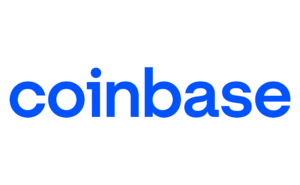Takeaways
- Bitcoin was introduced to the public in 2009 and has had a massive capital inflow.
- Bitcoin is the first cryptocurrency and still leads other cryptos, like Ethereum and Tether.
- Bitcoin has a market capitalization of $1.2 trillion as of the second quarter of 2024.
- Bitcoin is traded to cryptocurrency exchanges, used as currency, and a store of value.
- Spot Bitcoin ETFs were first approved by the SEC in January of 2024, establishing credibility among institutional investors and a boom in investments.
Some of the links in this article are from advertising partners of Smart Money, which does not influence our evaluations or recommendations. We work to provide you with accurate and reliable information. Our opinions are our own.
At this point, you have probably heard about cryptocurrencies, or “crypto,” as the early adopters and financial media like to call it. There is no conversation about crypto without mentioning the world's most famous and largest cryptocurrency, Bitcoin.
Since its debut in 2009, investors worldwide have clamored to purchase Bitcoin to diversify their portfolios, participate in a decentralized monetary system, and invest in blockchain technology. Let’s dive deeper into the first and most successful cryptocurrency to date
What is Bitcoin?
Bitcoin, or BTC, is a digital currency based on blockchain technology. It uses blockchain and cryptography to transfer, transact, and store Bitcoins. Bitcoin is a decentralized currency, which means it has no central authority (like the U.S. dollar, which has the Federal Reserve).
Instead of using a central authority or bank, it uses peer-to-peer technology to manage transactions and issue new coins through miner networks and public nodes. Today, Bitcoin has a market capitalization of over $1.2 trillion and is quickly becoming a household name [1].
Bitcoin offers a way to make digital payments directly between users without an intermediary. Many investors and users find this attractive because they believe central banks are engaged in inflationary measures. However, Bitcoin only offers 21 million coins, limiting the theoretical supply. Let’s talk about how to get your hands on some Bitcoin.
7 Ways to Buy Bitcoin
There are several established methods to buy Bitcoin. Whether you want multiple coins, part of a Bitcoin, or exposure to the Bitcoin market, the options are expanding quickly. Each method offers different levels of convenience, fees, and security. Here are the top seven ways to get Bitcoin:
1. Cryptocurrency Exchange
One primary way to buy Bitcoin is through a cryptocurrency exchange like Coinbase. These exchanges allow individuals to buy, sell, or trade Bitcoin using different currencies, such as USD and EUR. You could even use other cryptocurrencies.
All you need to do is choose an exchange, create an account, and start depositing investing capital. Once you have funds in your account, you can start purchasing Bitcoin. Your Bitcoin will then be stored in a crypto wallet provided by the exchange, or you can transfer it to a personal digital wallet for extra security.

on Coinbase Website
Coinbase
Smart Money Rating: 4.5/5
Best For: Investing in Crypto
Bonus Offer: Up to $200 for Getting Started (Terms Apply)
2. Online Brokerage Account
Another option is to use an online brokerage account. Many brokerages don’t offer direct trading of cryptocurrencies, but those that do are expanding rapidly. For example, you can trade Bitcoin on brokerages like Robinhood and Webull.
Trading Bitcoin on your online brokerage account can be as simple as buying and selling stocks, bonds, or other investments. If your brokerage account doesn’t offer Bitcoin trading, it might offer futures, which can provide exposure to the Bitcoin market. Check to see if your online broker trades Bitcoin. If not, consider creating an account on an exchange like Coinbase for direct access.
3. Bitcoin Exchange Traded Fund
In January 2024, the Securities and Exchange Commission opened the investment floodgates to Bitcoin when it approved 11 spot Bitcoin Exchange-Traded Funds (ETFs) for trading [2]. An exchange-traded fund offers an alternative way to invest in Bitcoin.
ETFs offer a way for investors to invest in Bitcoin without investing directly in the cryptocurrency. A spot Bitcoin ETF tracks the spot, or price, of Bitcoin and aims to follow its performance. This way, instead of buying Bitcoin directly, investors buy shares of the ETF that represent the ownership of a portion of the pooled Bitcoin controlled by the fund. These shares are traded on traditional market exchanges (Nasdaq and NYSE) instead of cryptocurrency exchanges.

on Acorns Website
Acorns Investing App
Smart Money Rating: 5/5
Intro Offer: $20 Bonus Investment
Recommended For: Beginner Investors
Annual Fee: N/A
4. Bitcoin ATM
Have you ever heard of a Bitcoin ATM? Bitcoin ATMs, or BTMs, are a straightforward and quick method for buying and exchanging USD for Bitcoin [3].
BTMs are in public areas like shopping malls, cafes, and airports. These kiosks allow you to deposit cash into the machine or swipe/scan your credit or debit card. You then select the dollar amount of Bitcoin you want, and the equivalent amount of Bitcoin will be calculated.
Then, you scan your Bitcoin wallet QR code and deposit the keys into your hot wallet.
While BTMs are usable by anyone, you might have to create an account with the BTM operator, verify your identity through your mobile phone, or scan a government-issued ID.
Websites like Coin ATM Radar can help you locate the nearest machine.
5. Money Transfer Apps
Buying Bitcoin using mobile payment apps is convenient for those looking to trade or invest in Bitcoin through familiar interfaces. For example, you can buy and sell Bitcoin on Cash App.
Popular apps like PayPal have started offering services to buy, hold, and sell Bitcoin directly within the app. This makes paying and receiving Bitcoin all that much easier. It is as simple as setting up an account linking your debit or credit card to create an account
6. Crypto Wallet Apps
Crypto wallet apps are a popular method for buying Bitcoin. They allow users to manage their cryptocurrency investments directly from mobile or desktop devices. These apps act as a wallet and a platform to purchase or exchange Bitcoin.
After choosing and downloading a reputable crypto wallet app that supports Bitcoin, you set up your wallet, add funds, and buy your Bitcoin. Check out mobile apps like Muun.
7. Gifts
Buying Bitcoin as a gift is a popular way to introduce friends and family to cryptocurrencies. Bitcoin gift cards can be purchased from various online providers. These cards can be loaded with a specific amount of Bitcoin (like any other gift card), and the person you give it to can redeem it in their Bitcoin wallet.
If you already own Bitcoin, you can simply transfer Bitcoin from your wallet to the recipient's wallet. If you don’t have the mobile app to receive Bitcoin, you might have to download it to store your private keys (more on that below).
Before Investing in Crypto, consider- > Saving an Emergency Fund
Where To Keep Bitcoin
You need to keep Bitcoin in a cryptocurrency wallet—specifically, the keys to your Bitcoin. There are several types of wallets—hot and cold—that have different security features, accessibility, and control.
- Custodial Wallets store your Bitcoin with a third party, like a cryptocurrency exchange. With this option, you have less control over your keys, but don't worry about knowing how to execute transactions. These wallets are considered hot wallets.
- Mobile Wallets store your private keys online or in the cloud and are accessible from any smartphone or computer. They are super convenient for everyday use, such as buying, selling, or transacting in Bitcoin. However, because these hot wallets are all but continuously connected to the Internet, they are considered less secure and susceptible to hacking.
- Software Wallets are applications that you can download to your laptop or desktop. Depending on how often your computer is connected to the internet (or not), they are generally considered cold wallets.
- Hardware Wallets are physical devices that resemble USB drives. They store your cryptocurrency keys offline, making them more immune to computer viruses and hacks. Hardcore crypto investors like to use hardware wallets, and if you have a lot of coins, this can be a smart place to store them.
- Paper Wallets store your private keys offline on physical documents. The documents contain everything you need to generate Bitcoin private keys. While these are secure from cyber-attacks, they are far easier to lose to physical damage or loss. Once you lose your keys, you lose access to your coins.
Learn more about hot and cold wallets -> What are Hot Wallets?
Ways to Use Bitcoin
Institutional investors, accredited investors, and retail investors can all have different perspectives on Bitcoin and how to use the cryptocurrency. Bitcoin offers a range of uses beyond the more well-known role as a digital currency. Here are some of the most common ways you can use Bitcoin:
- Investment: Most people purchase Bitcoin as an investment, hoping it will increase in value over time and act as a store of value against inflation.
- Purchasing Goods and Services: The expansion of Bitcoin as a digital currency also increased its use in everyday transactions. Many businesses now accept Bitcoin as payment for goods and services. This trend will continue as more businesses adopt Bitcoin as an acceptable currency.
- Tipping: Bitcoin has become a common way for content creators, artists, and other creatives to receive tips directly from their audience.
- Fundraising and Donation: Charities and non-profit organizations are starting to accept Bitcoin donations. It is beneficial for international donors, especially because, without a middleman, you avoid high fees.
Smart Summary
Cryptocurrencies are quickly becoming an additive sliver to many people’s investment portfolios. With the recent adoption of spot Bitcoin ETFs, Bitcoin futures, and the proliferation of crypto exchanges, this asset class is becoming an integral part of the modern portfolio. Young professionals are adopting Bitcoin and digital currencies as the payment form of the future. Analyze your portfolio and see if Bitcoin might be additive to your suite of stocks, bonds, real estate, or annuities. Need more information? Consult with a financial advisor to review your portfolio.
Frequently Asked Questions
Bitcoin is significantly more volatile than investing in indexes like the S&P 500. However, volatility isn’t inherently bad for your portfolio. Injecting investments with a high beta into your portfolio can increase overall return.
Because Bitcoin is relatively new, there are still many risks associated with this new form of digital payment.
Potentially. As computer power increases, sophisticated and powerful computing processes, like quantum computing, could harness the power to break Bitcoin encryption. To date, however, investors are less concerned about this issue.
The U.S. has begun to reserve a long neutral/negative stance on cryptocurrencies. The SEC’s approval of 11 spot Bitcoin ETFs in 2024 has shifted the tide. Some countries, like China, have placed a ban on cryptocurrencies.
(1) CoinCoDex. Bitcoin Market Cap. Last accessed on April 27, 2024.
(2) Securities and Exchange Commission. Statement on the Approval of Spot Bitcoin Exchange-Traded Products. Last accessed on April 27, 2024.
(3) Kansas City Fed. The Controversial Business of Cash-to-Crypto Bitcoin ATMs. Last accessed on April 27, 2024.










